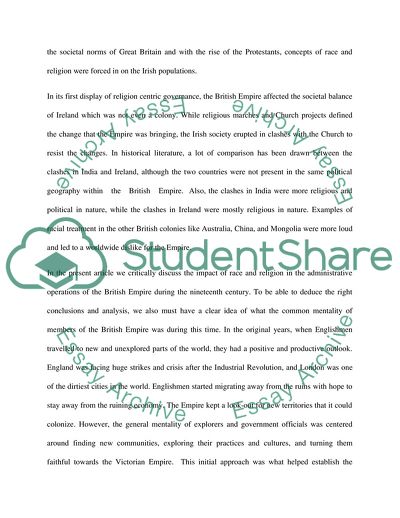Cite this document
(British Empire in the Nineteenth Century Article Example | Topics and Well Written Essays - 2500 words, n.d.)
British Empire in the Nineteenth Century Article Example | Topics and Well Written Essays - 2500 words. https://studentshare.org/history/1828095-1critically-discuss-the-role-that-ideas-about-race-and-religion-played-in-19th-century-british-imperialism-use-examples-from-one-or-two-colonies-to-build-your-argument
British Empire in the Nineteenth Century Article Example | Topics and Well Written Essays - 2500 words. https://studentshare.org/history/1828095-1critically-discuss-the-role-that-ideas-about-race-and-religion-played-in-19th-century-british-imperialism-use-examples-from-one-or-two-colonies-to-build-your-argument
(British Empire in the Nineteenth Century Article Example | Topics and Well Written Essays - 2500 Words)
British Empire in the Nineteenth Century Article Example | Topics and Well Written Essays - 2500 Words. https://studentshare.org/history/1828095-1critically-discuss-the-role-that-ideas-about-race-and-religion-played-in-19th-century-british-imperialism-use-examples-from-one-or-two-colonies-to-build-your-argument.
British Empire in the Nineteenth Century Article Example | Topics and Well Written Essays - 2500 Words. https://studentshare.org/history/1828095-1critically-discuss-the-role-that-ideas-about-race-and-religion-played-in-19th-century-british-imperialism-use-examples-from-one-or-two-colonies-to-build-your-argument.
“British Empire in the Nineteenth Century Article Example | Topics and Well Written Essays - 2500 Words”. https://studentshare.org/history/1828095-1critically-discuss-the-role-that-ideas-about-race-and-religion-played-in-19th-century-british-imperialism-use-examples-from-one-or-two-colonies-to-build-your-argument.


